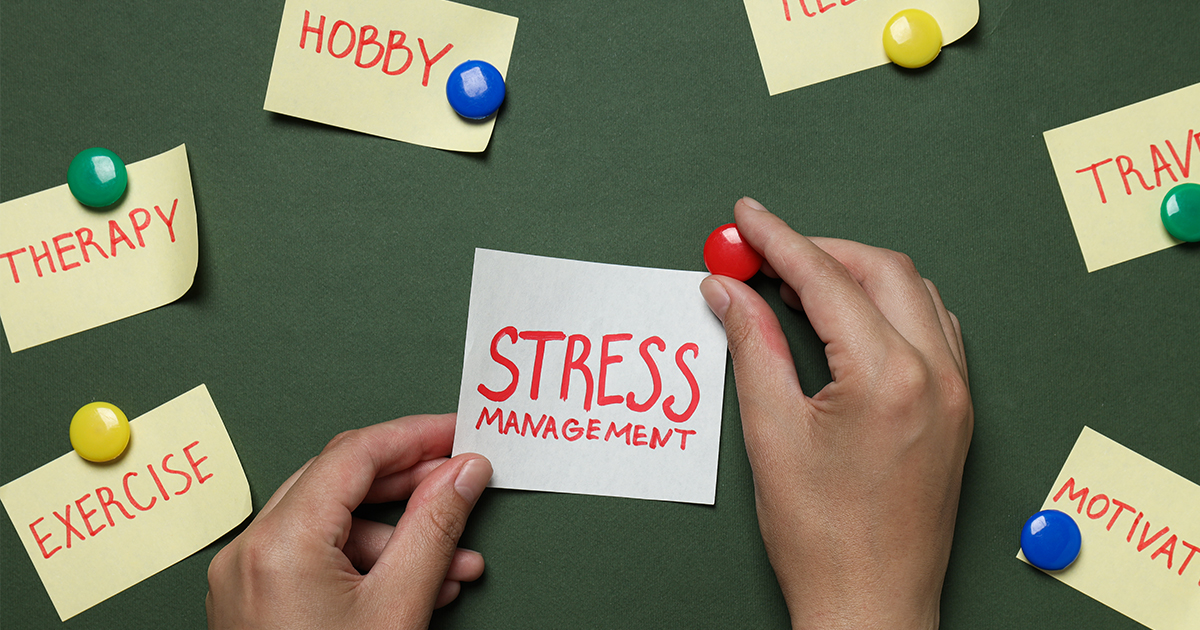The Domain of Stress Management
Stress is an unavoidable and essential part of our human experience.
Successful stress management is a strong driver of personal growth, optimism, and resilience, and mastering stress is associated with an enhanced sense of well-being and satisfaction.

Rethinking Stress: A Broader View
When most people hear the word stress, they think of something negative—something to reduce, avoid, or escape. It’s often linked to tension, overwhelm, fatigue, emotional strain, and disrupted sleep. Public messaging frequently frames stress as a threat to health and well-being.
But this view is incomplete. It’s like judging a symphony by focusing only on its moments of tension—missing the balance, resolution, and beauty that unfold over time.
Stress: A Catalyst for Growth
While chronic, unrelenting stress can be harmful, stress itself is not the enemy. In fact, it’s one of the core drivers of growth.
In manageable doses—especially when tied to something meaningful—stress becomes a training ground for resilience, confidence, and emotional strength. These aren’t just benefits; they’re vital capacities for a fulfilling life.
Growth Requires Discomfort
We aren’t wired for constant ease. By nature, we seek lives of growth, purpose, and meaning.
But if you want to grow, you can’t stay comfortable. And if you cling to comfort, growth is unlikely to follow. The choice is yours.
Purposeful effort and healthy stress aren’t obstacles—they’re the conditions through which vitality, capability, and fulfillment are built.
The Sweet Spot: How Stress Affects Health
Research shows the relationship between stress and health follows a U-shaped curve. People with moderate levels of adversity often report greater well-being than those with too much stress—or too little.
The healthiest people aren’t stress-free. They encounter the right kind of stress: manageable, purposeful, and aligned with their values.
Two Extremes: When Stress Hurts
At one extreme, toxic stress—chronic, overwhelming, and beyond our control—can contribute to heart disease, poor immunity, sleep issues, and other physical and mental ailments.
At the other extreme, too little stress—especially when life feels aimless—can lead to disengagement, restlessness, and lack of motivation.
Thriving lies between these extremes. The goal isn’t to avoid stress altogether, but to work with it in a way that supports health and vitality.
What You’ll Find Here
This site is here to help you rethink stress and develop a more resilient, empowered response to it.
Through research-based insights and practical tools, you’ll discover how to:
- Differentiate between toxic and growth-oriented stress
- Expand your toolkit for managing stress across different situations
- Build coping flexibility that adapts to changing demands
- Reframe pressure as a catalyst for personal development
- Establish daily rhythms that support energy, focus, and well-being
Stress doesn’t have to work against you. With the right strategies, it can become a force that strengthens your capacity, sharpens your purpose, and supports a healthier, more engaged life.
Join the Community
Subscribe to receive content that will help you strengthen your health, energy, and well-being—and over time, we’ll explore how these ideas connect across all six domains.
Table of Contents







